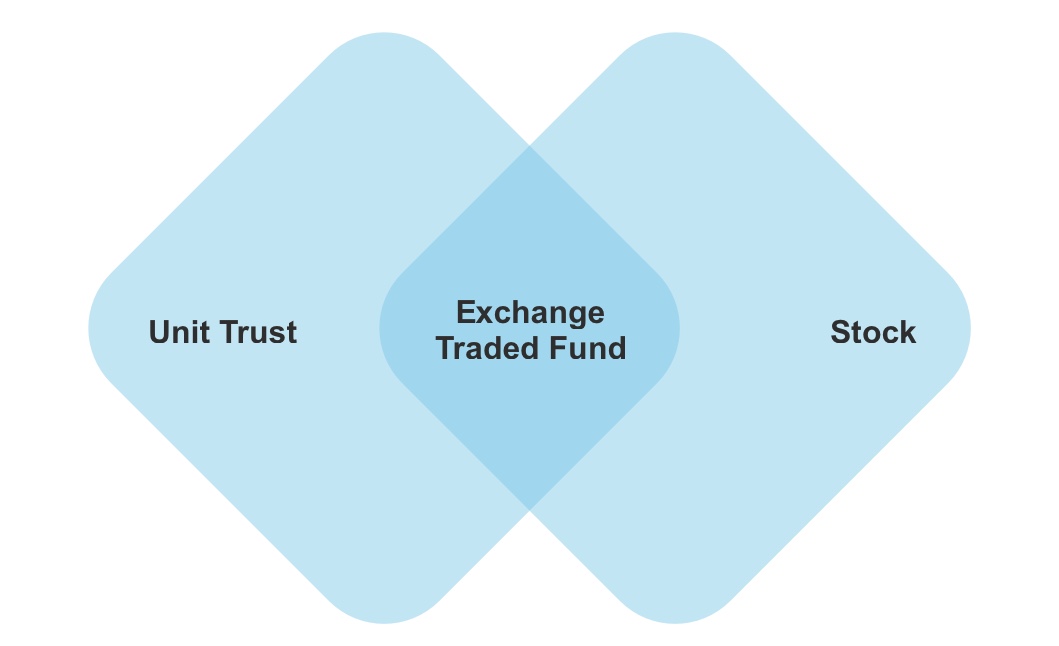ETFs hold a basket of securities to track performance of a specific index. Unit trust funds also hold a portfolio of assets. Nevertheless, both funds have marked differences.
The main differences between ETFs and unit trust funds are:
ETF | Unit Trust | |
|---|---|---|
| Investment Objective |
|
|
| Buy and Sell Transactions |
|
|
| Cost to invest |
|
|
| Minimum Investment Amount | No |
|
| Continuous trading and pricing throughout the trading day? | Yes | No |
| Prospectus available? | Yes | Yes |
| Can be purchased online? | Yes | Yes |
| Redemption charges for withdrawals | No | Yes |
| Possible to view the underlying securities? | Yes | No |
| Possible to receive dividends? | Yes | Yes |
* Only for specific unit trust i.e. through a bank
** Only for specific unit trust funds, typically bond funds.
*** Most funds only reveal their top ten holdings.
Source: Bursa Malaysia

ETFS | Stocks | Unit Trust | |
|---|---|---|---|
| Diversification | |||
| Real-time dissemination | |||
| Trade via | Broker | Broker | Agent |
| Purchase of ETF / Stocks / Unit Trust | T+3 | T+3* | Upfront |
* T+3 means the 3rd market / business day after trade date.